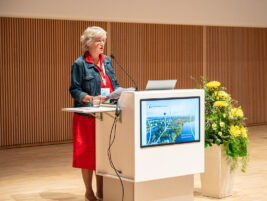The papers in this Issue about parental and infantile sexuality, ways of observing family functioning in general and, more specifically ,in the case of maternal post partum depression, may look unrelated. Actually, from my perspective, they are related.

To start with, as Frances and Campbell wrote, not only is the individual parent’s own sexuality in play with the infant’s libido, but also the conjugal relationship. The topic is mainly unspoken, because it may underlie incestuous and homosexual urges. Still, in our clinical practice, we may find those cases where sleeping difficulties and/or prolonged breast feeding in fact reflect the parental (often, but not always the mother’s) difficulty to “separate but still love and be loved” on the body level, in the context of an unsatisfying conjugal relationship. It may be difficult for the clinician to raise the issue, in part because parents who come to infant mental health professionals are reluctant to think deeply about their sexual relationships and unconscious fantasies, preferring to formulate problems, such as breast feeding and/or sleep problems, as inherent in their infant’s characteristics. This is where the Lausanne Triadic Play and the Lausanne Family Picnic, as observational tools, become interesting. These very structured procedures often open a window to unconscious, non verbal, processes that underlie the observed parental behaviors. For instance, the fourth part in both procedures, reflect the conjugal relationship, regardless of the content of the parents’ talk. In our experience, “forgetting” to do the fourth part often unconsciously reflects a significant conjugal difficulty. In some cases, prolonged breast feeding may not only be the consequence but the cause of the marital discord, when the father unconsciously reacts to the eroticism embedded in the mother-infant interaction. We have also seen the opposite situation, where father’s co-sleeping with his infant daughter had a veiled sexual connotation, and was related to a disrupted marital relationship, for instance secondary to postpartum maternal ‘blues”. Some women actually have sexual relationship mainly to have a baby, and lose interest in their husband after the child is born. Taking care of the baby then becomes the mother’s pretext for keeping her distance from the father. Single mothers may be at a greater risk than partnered mothers of unconsciously erotizing their relationship with their infant, when their single parenthood is the result of intrapsychic difficulties with sexuality and intimate relationships with men.
And what about our own counter-transference? In order to discover those situations where the infant’s symptoms actually reflect erotic investment in the parent-child relationship in the context of a disturbed marital relationship with unspoken sexuality issues, we need first to be aware of our own thoughts and feelings about an infant’s sexuality.
More generally speaking, we definitely need to think more in terms of looking for links between infant’s symptoms and family functioning (Mc Hale, 2007; Keren et al, 2010). Family functioning may be assessed with observational tools that open windows to unconscious processes and with semi-structured interviews (such as the McMaster Family Functioning Interview (Epstein et al, 1978), that reflect the family members’ conscious perception of their own relationships and functioning. For instance, in our clinical practice, we have found that looking at the parents’ body formation during a triadic session often opens for us a window to their unconscious, or at least unspoken, feelings one towards another, towards their infant, as well as towards the therapist. In parallel, we have learned to become more aware of our own non-verbal body language, towards each parent and towards the infant: Where we sit, how much we lean forward, towards whom, how much distance we sit one from the other. The videotaping of such sessions is very useful for reflective supervision on these complex parallel processes.
References
Epstein, N.B., Bishop, D.S. & Levine, S. (1978). The McMaster model of family Functioning. Journal of Marriage and Family Counseling, 4, 19-31.
Keren M, Dollberg D., Kosteff T, Danino K, Feldman R. (2010) Family Functioning and Interactive Patterns in the Context of Infant Psychopathology, Journal of Family Psychology , 24 (5), 597-604.
McHale, J. (2007). When infants grow up in multi-person relationship systems. Infant Mental Health Journal, 28, 370-392.
Authors
Keren, Miri, M.D.,
the Editor of Signal,
Israel








